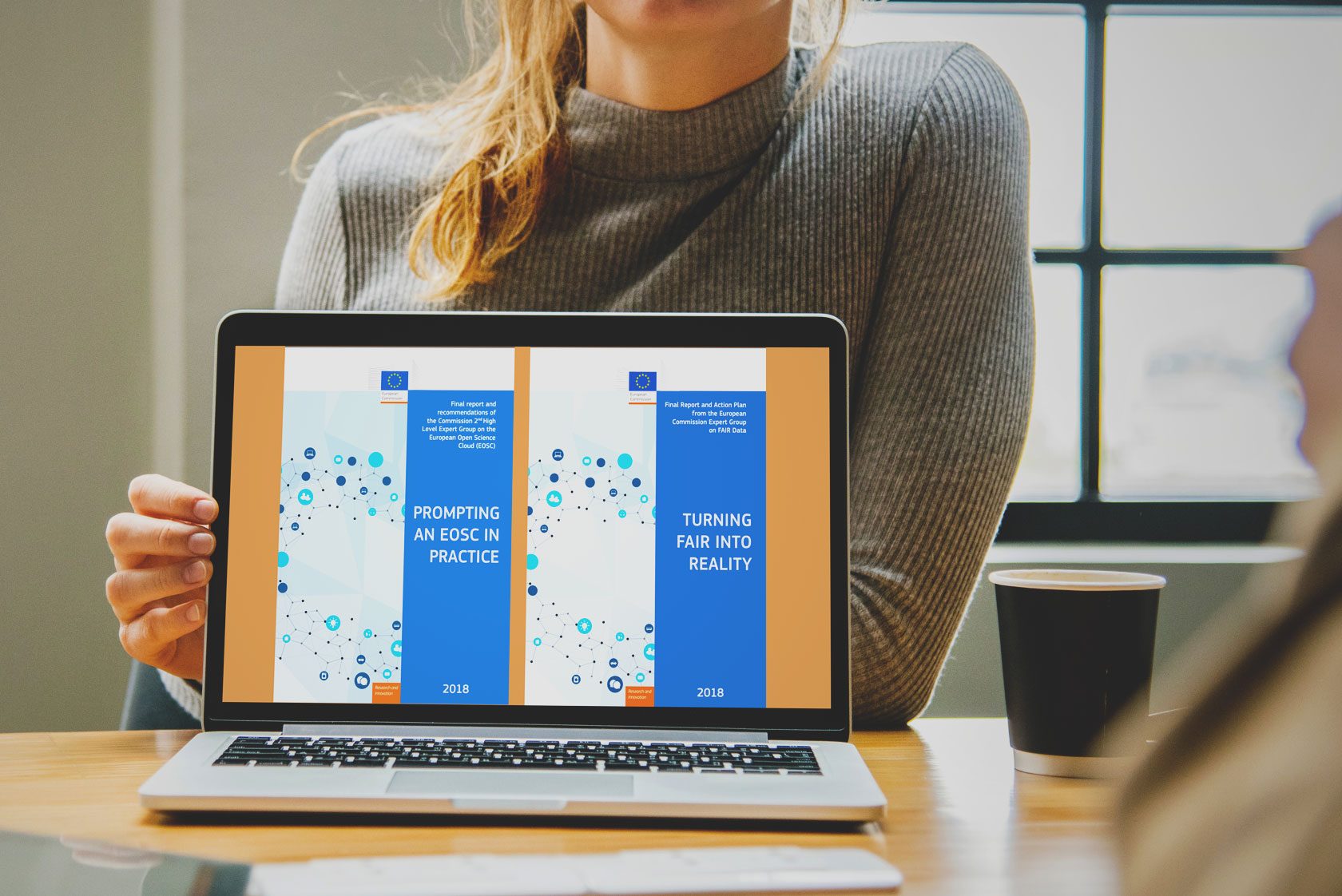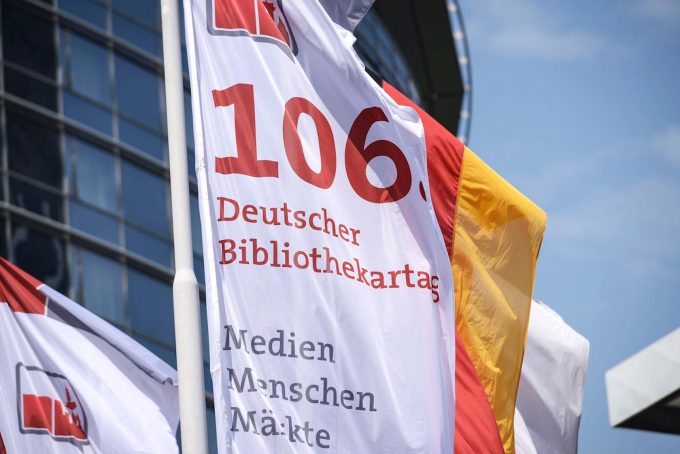
New Open Science Reports: How to put EOSC and FAIR Into Practice
How could the European Open Science Cloud and FAIR be prompted into reality? What challenges have to be mastered, which business models and roles should be considered? Two recently published reports contain background information and sets of recommendations.
by Birgit Fingerle
Two recently published reports contain lots of information on putting open science into practice in Europe. Both expert groups and their reports complement each other. On the one hand, will FAIR support the European Open Science Cloud (EOSC). On the other hand will the federation of data infrastructure and the application of standards enable the discovery and interoperability of data.
The first one is the final report and recommendations of the Commission 2nd High Level Expert Group on the European Open Science Cloud (EOSC): “Prompting an EOSC in practice”.
Skip to PDF contentReport: “Prompting an EOSC in practice”
The Commission 2nd High Level Expert Group on the European Open Science Cloud (EOSC) deals with the topic of making the EOSC a viable ecosystem and focuses on two crucial aspects of the EOSC: governance and financing of the EOSC. ZBWs director Professor Klaus Tochtermann was a member of this expert group.
The report clarifies the roles of different stakeholders and challenges that need to be solved. On the one hand it examines synergies between the three advisory bodies of the European Commission OSPP, the FAIR data expert group, and the HLEG EOSC and also provides an overview of related initiatives and activities. On the other hand the report identifies the stakeholders involved, for example European researchers, software developers/service providers and infrastructure managers, and their roles.
Challenges that need to be solved
The HLEG has identified several challenges which need to be addressed. Before defining a compliance framework for EOSC these challenges should be addressed:
- enable integration of and access to resources that will be federated in the EOSC
- cross-border and cross-discipline research collaboration
Furthermore, a number of long-term challenges have been identified by the HLEG, among them are:
- private sector involvement in the EOSC
- human capacity development for open science
- further development of procurement models for EOSC delivery
- emerging technological areas and priority needs (for instance blockchain, ethical AI)
- FAIR-data-related challenges
The report contains implementation recommendations, engagement recommendations and steering recommendations. Among them is the implementation recommendation to select standards and community-endorsed best practices to ensure interoperability and composability of EOSC services and resources, and promote and enforce their adoption across research communities, leveraging existing international initiatives and collaborations.
EOSC Business Model and Minimum Viable Ecosystem
The report looks closely into making the EOSC a viable ecosystem. Since building the EOSC will take place in a very heterogeneous landscape, defining a smallest common denominator, a minimum viable ecosystem (MVE), seems to be helpful for building the EOSC. The report contains a list of features the minimum viable ecosystem should have.
The EOSC business model fills another major part of the report as it is a critical element for the success of the EOSC.
“Given the dispersed nature of scientific research and the variety of tools and processes required by scientists in different fields and locations, a federated environment requires a similarly decentralised business model to support the technical environment that will be developed.”
– Prompting an EOSC in practice
The report addresses the topics governance, transparency and accountability. In regard to the funding model and payment mechanisms the report contains a comparison of three major options including novel ideas: the conventional ‘direct support’ funding and payment model, a pure EOSC vouchers model and a hybrid model where some resources are supported via direct funding and other resources are accessed with cloud coins.
Concerning the rules of participation, the FAIR principles (Findability, Accessibility, Interoperability, Re-Usability) can be mapped into different parts of the EOSC MVE. The report also lists eligibility criteria for the data and service providers as well as for the users involved in order to ensure that the data respect the policy goals, specifically FAIR guidelines, and to create an EOSC that is appropriately sized and increases data sharing and reuse in practice.
Report: “Turning FAIR into reality”
The second report is titled “Turning fair into reality”. It is the final Report and Action Plan from the European Commission Expert Group on FAIR Data.
Skip to PDF contentThe FAIR Data Expert Group looked closely at the FAIR data principles and has formulated recommendations for their implementation. The report focuses mainly on cultural change, incentives and metrics, as well as the skills and capacity needed to make FAIR data become true. It is both a report and an action plan. Among its conclusions and priority recommendations are the following: FAIR digital objects are a prerequisite for realizing FAIR. These digital objects may represent data, software or other research resources and have to be accompanied for instance by persistent identifiers, metadata and contextual documentation to enable their discovery, citation and reuse. A FAIR ecosystem is needed comprising key data services that support FAIR.
In order to support FAIR across discipline boundaries interoperability frameworks play a central role. They define community practices for data sharing, data formats, metadata standards, tools and infrastructure and recognize the objectives and cultures of different research communities. This way they help to break down silos. Research workflows and data management plans also have to be made FAIR. The efforts of developing standards and infrastructure while implementing the FAIR ecosystem via the EOSC have to be coordinated. Here, international and multidisciplinary data organisations have to play a major role.
Skills development and professionalizing roles
To make FAIR data work a considerable and wide-reaching enhancement of skills for data science and data stewardship is necessary. This means for instance professionalizing roles and curricula. Research teams should include or be supported by data professionals providing these skill sets. In addition, a certification of FAIR services in conjunction with a commitment to long-term stewardship and sustainable funding would be of help.
The current dependency of researchers’ career progression on metrics linked to academic publications penalizes researchers who devote time and expertise to data curation and similar activities. That’s why the development of next-generation metrics, which should be used responsibly in support of open science, seems to be necessary. Furthermore, metrics and indicators for research contributions need a closer look reaching beyond the level of the individual researchers to make sure they incentivize cultural change towards open science and FAIR. The strategic planning of infrastructure investment and the role of research facilities and research institutions also has to be analyzed in order to make data FAIR.
View Comments

OER Guidelines and Tutorials: How to Create Open Educational Resources
Open educational materials are very popular. But how can lecturers be convinced to...



